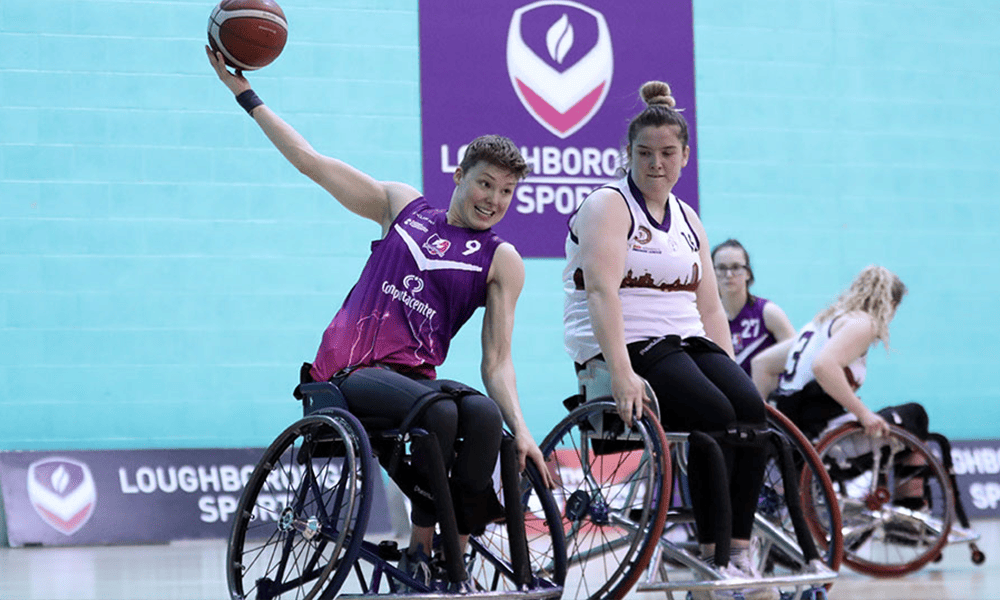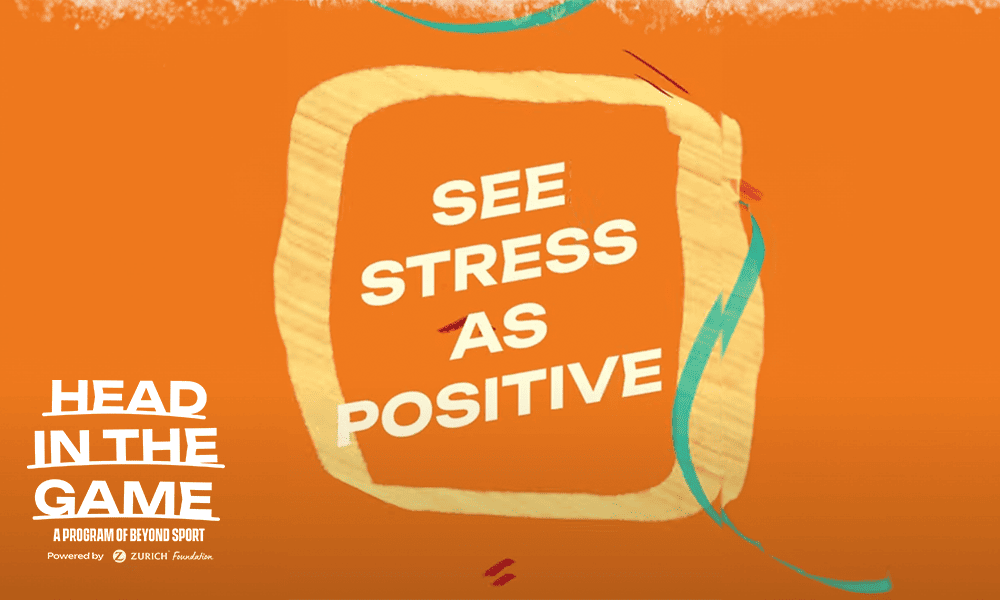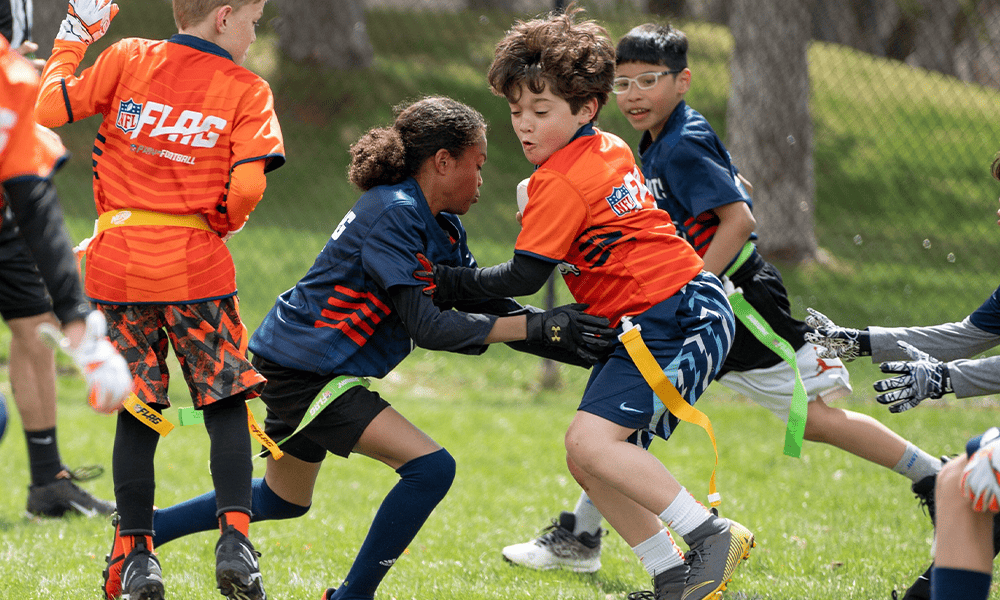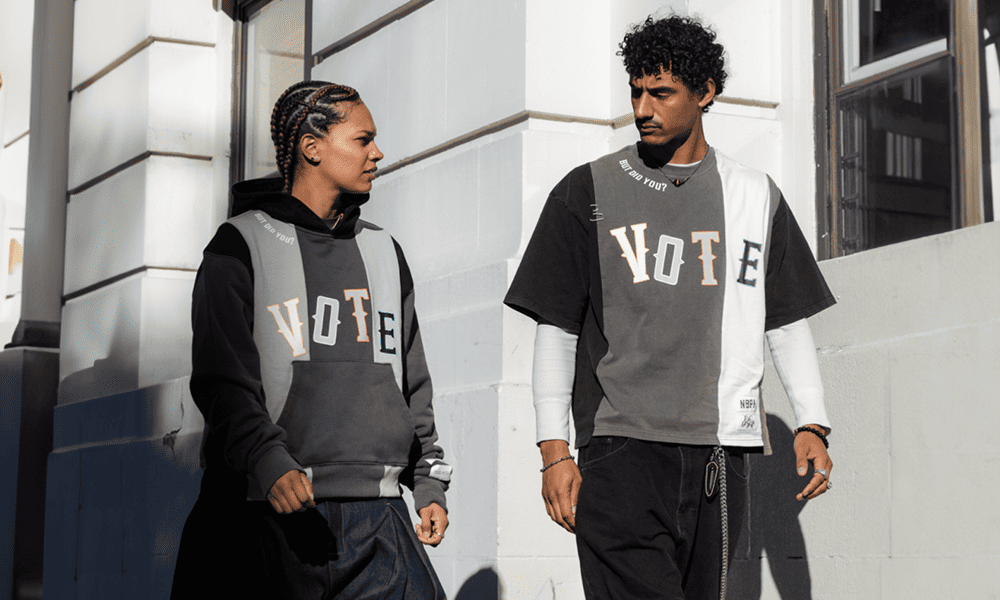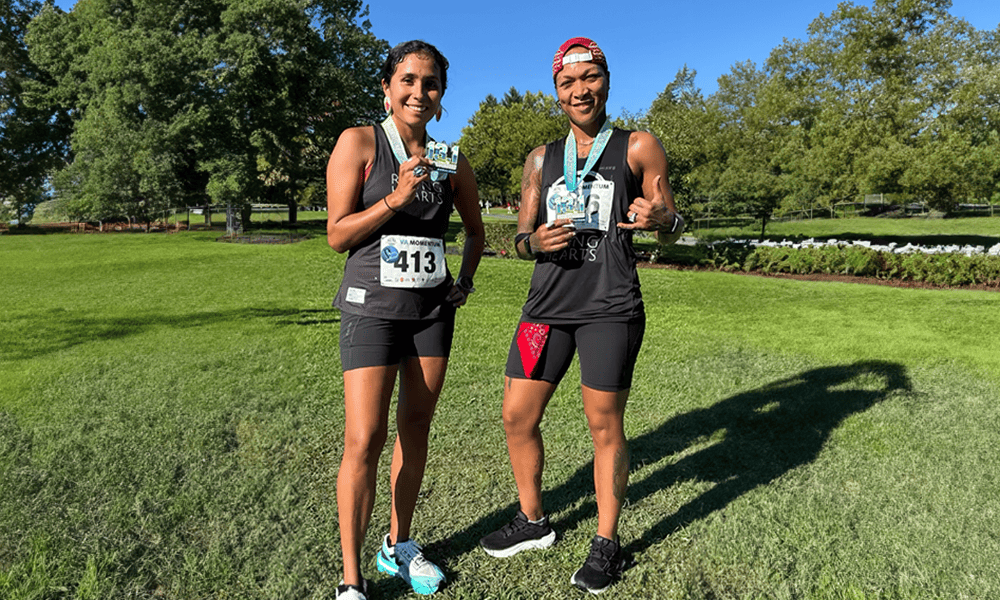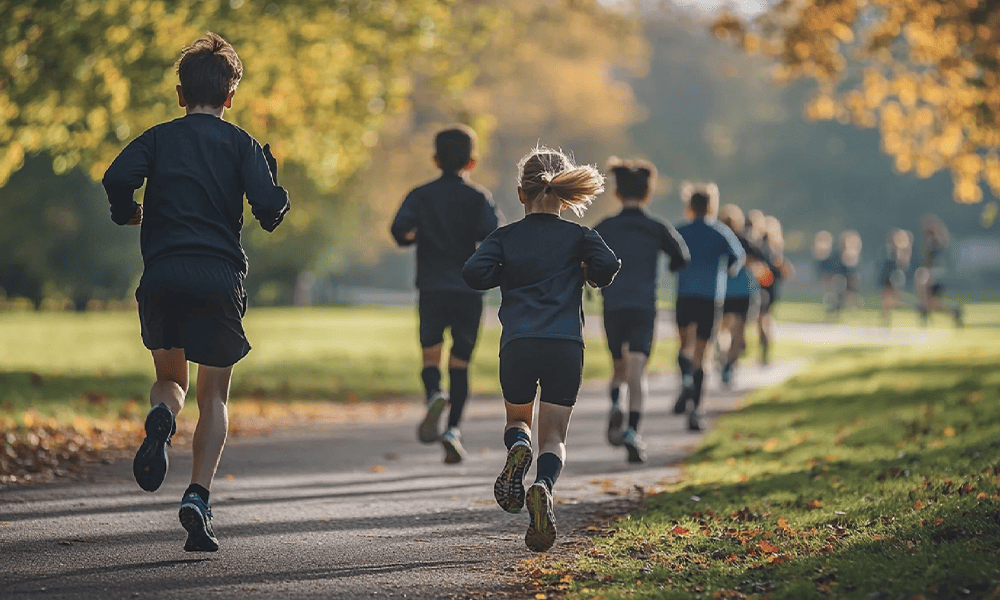July 29, 2022
This Tuesday, 250 sport sector leaders joined us at the iconic Villa Park stadium in Birmingham, England for the Beyond The Games forum held in partnership with Sport England and UK Sport. Just ahead of the Birmingham 2022 Commonwealth Games, which opened yesterday, it was a lively day of insight-sharing, frank discussions and networking as we collaborated on ways to ensure an equitable, inclusive and impactful sporting and physical activity ecosystem that serves the needs of our communities.
“After the last few years of separation, it was brilliant to be able to see the sector back together,” said Beyond Sport Executive Director, Fred Turner. While much of the discussion reinforced the importance of sport to our communities and how, when used with intention, it is a uniquely powerful tool to help tackle our biggest social challenges, it was also refreshing to have a candid forum about where we are falling short and how, collectively, we need to do more. Beyond Sport develops platforms like these just for that reason, to educate and inspire, but also to have honest conversations on how we can do better. Beyond the Games 2022 did just that.”

Through panels, targeted workshops and case studies, the forum addressed sport’s role in: Tackling Inequalities – how can we create social equity, remove barriers to participation and increase community-led and owned programming?; Health and Wellbeing – how can we maximise sport’s role in improving the physical, mental and social wellness of our communities?; and, Environmental Sustainability – how can sport lead the way to being planet positive across infrastructure, internal best practices, event delivery and advocacy?
With a pre-event survey reflecting that 93% of attendees shared the belief that sport organisations and businesses have a responsibility to leverage their platform and influence to do good in and for society, it was an opportune time for deeper examination, and crucially, action.
Hosted by thinkBeyond Co-Managing Director, Radha Balani, the forum began with a session on Trusting Our Communities with Souleyman Bah (Team GB Paralympian & Royal Society for Blind Children), Nicky Yates (Liverpool City Council), Amrick Singh Ubhi (Nishkam Civic Association) and Andrew Nichols-Clarke (NHS England).

Ubhi emphasised the importance of strong relationships and place-based working. “A place is an identity; it can become marginalised or experience inequalities. On a super micro level people are helping each other, but we can’t make local communities victims of change. By building trusted relationships, we can curb the norm that we’re seeing of organisations coming into a community and helping for a short period of time. We need to think about the long-term gain for the neighbourhood and people. Local organisations know the locality, we know the people, we know the gaps, and by partnering with us we can make a difference together.”
A consensus on the need for approaches based on a true understanding of communities and their specific challenges weaved throughout the rest of the day. Real-world examples of multi-sector partnerships in action provided additional best practice.
Kathryn McColl (EVERFI UK), Charlotte Thompson (British Olympic Association) and Jill Puttnam (British Paralympic Association) spoke about their Get Set education programme established after the London 2012 Olympic Games with “collaboration in mind.” It remains hugely popular and has engaged with 93% of UK schools since launching, helping young people and families to be more active, live healthier lives, promote inclusion and develop skills for their futures.
Fiona Morgan (Sail GP) spoke about their Impact League, the “only league in sport for sustainability”, based on behavioural science. “People love sport. They’re losing trust in everything but not sport. I’m here today to inspire people in the room to think more about sustainability and how they can apply it and write it into their agendas and strategies.”
Rounding out the case studies, Tanayah Sam (TSA Projects) talked about his personal journey from prison to building partnerships that are allowing his organisation to help youth in Birmingham. “We’ve had eight shootings in seven days in this area. That’s where our focus lies, to use sports as a means to change gang violence. Gang violence is often overlooked. Sports can play a role in deterring people from that.”

Sam also explained that sport is transformative, and the sector should look beyond just programme participation. He stressed the need for strategy and managerial opportunities for young people who don’t have the aspirations to become an elite athlete. “We need to show them that there are other levels open to them, more opportunities other than joining a gang and engaging in knife crime or violence. Sport has been a means to redefine myself and can be the same for these young people.”
With 46% of attendees sharing that they’ve experienced gender-based discrimination and 76% saying that they’ve been aware of it against others in the industry, we took a spotlight on women in sport next. Sue Anstiss (Fearless Women and Women’s Sport Collective) moderated a panel on creating an equitable leadership landscape with Naseem Akhtar (Sähëlï Hub), Vicki Aggar (British Athletes Commission), Karen Brown (Great Britain and England Hockey) and Sarah Powell (British Gymnastics).
The panellists spoke on the need for multiple pipelines that give women the opportunity to become top level leaders. Brown noted “there’s approximately 10% of female coaches at an Olympic level. There’s no real reason why there aren’t more female leaders, it’s not for lack of talent. We need to understand the blind spots in sport and collab to fill them.”
Akhtar added “50% of the time I’m the only woman in a room – 100% of the time I’m the only ethnic woman. There’s no representation. No real support for women to be at a managerial level. I’ve heard a lot of talk over the years so it’s action time for me. We need more change and more outreach.” She also went on to explain how there need to be different models for different communities and how short term, six-week summer programmes are flawed in creating real change.
“Stop funding national bodies to do local work…they don’t know the needs of gaps that need to be filled. To see real change, we need to see a generational shift, and this means losing those short-term programmes and implementing programmes over years because inequality has been here for at least two decades.”

With the announcement that the world’s largest network dedicated to advancing gender equality in sport – the IWG World Conference – is coming back to the UK after November’s conference in New Zealand, Annamarie Phelps (European Rowing and BOA) and Rachel Froggatt (IWG Women and Sport Secretariat & Conference 2018-22) spoke on the urgent need not to make gender inequality a ‘women’s issue’. “It’s not something for us to fix. It’s a fix to the system that needs to be made, and we must ensure that diverse values are heard to make sport fully inclusive,” said Phelps.
The CEO’s of our forum supporting partners took the stage next. Tim Hollingsworth (Sport England) and Sally Munday (UK Sport) shared on how they collaborate to help increase physical activity levels. Hollingsworth explained that “good collaboration is a contact sport” and to tackle inequality and reduce barriers to entry, “we have to think, work and behave differently…Together with UK Sport and others, we’re collaborating to find out what the gaps are in local communities so we can strategize a plan to help. We won’t know if we don’t partner with those local groups.”

Munday added that we’re seeing a new generation of athletes who want to make more of an impact and how it’s UK Sport’s role to “help them maximise their platforms” to create real impact and change in the issues that matter most to them. She also noted that we’re at a tipping point in the way people view women’s sport with its increased visibility.
“We need to stop saying thank you for showcasing women’s sport, we’re making it sound lesser than it is. Make this mainstream and accepted. Good women’s sport has the capability to change some of the misogyny and sexism in society.”
A global perspective on meeting new and changing local needs followed with Ross Alexander (Aston Villa Football Club), Joan Smit (Namibia National Olympic Committee and International Netball Federation), Will Stone (NFL UK), Rodri Ruiz-Iribarren (Rexona/Sure) moderated by Nick Keller (Beyond Sport). The panellists agreed that we need to think beyond programming when considering what ‘sport for development’ means, and how we should understand the gaps that need to be addressed on the ground by partnering locally.
“We asked ourselves ‘how do we take the NFL and engage youth in the UK’? We focused on a hyper local approach, inspiring youth in communities that don’t get the opportunity for flag football,” shared Stone. “But they can’t do what they’ve done in the US and do the same thing here. The needs are different, the communities are different. But the league has been great in empowering us to focus on that local need and creating that local change.”

Attendees then went into roundtable workshops to dive deeper into key opportunities for sport led by experts from Alliance of Sport, The Change Foundation, EVERFI UK, NFL Foundation UK and BIGKID Foundation, Perrett Laver, Sport England, thinkBeyond, UK Sport and Upshot.
Closing out the day were Two-weight World Champion Boxer, Carl Frampton, former Aston Villa Women’s Football Club Captain, Marisa Ewers, and Commonwealth Games Netball Gold Medallist, Ama Agbeze, who reflected on maximising their unique positions as former elite athletes to create positive change beyond the field of play.
As a Board Member of Birmingham 2022, Agbeze shared on the Games’ capability to create a legacy for the city. “We have an opportunity for sustained impact long term. We can impact business and our local community and not just abandon them once the Games are over.”
Ewers noted that with sportswomen still facing challenges like salary inequality and underfunded facilities, athletes have a responsibility to be role models and change the situation for the next generation of women in sports. Frampton also spoke about how he is using his influence to advocate outside of sport.
“If you have a platform, you should use it in a positive way. Although I have a sports background, I’m an advocate for Ireland and for integrated schools. Just under 8% of schools are of integrated status and this is what I want to change so that generations to come can feel its benefits,” he said.

Beyond the Games also provided a platform for executives to explore responsible leadership. A day before the forum, we held a Senior Leadership workshop delivered by thinkBeyond with guest speaker John Ferguson (Economist Impact). He got the room thinking outside of solely the sports prism to explore their role as business leaders and employers amidst global geopolitical, economic and health challenges.
Beyond Sport is appreciative of all our attendees, speakers and sponsors for making our first live UK event since the pandemic a success. There was a real sense and appetite for action from all those who participated and the consensus of collaboration being key in tackling today’s social issues.
Photos: Jason Sheldon/Shutterstock
Make sure you are subscribed to our mailing list to hear about our events and programmes.

